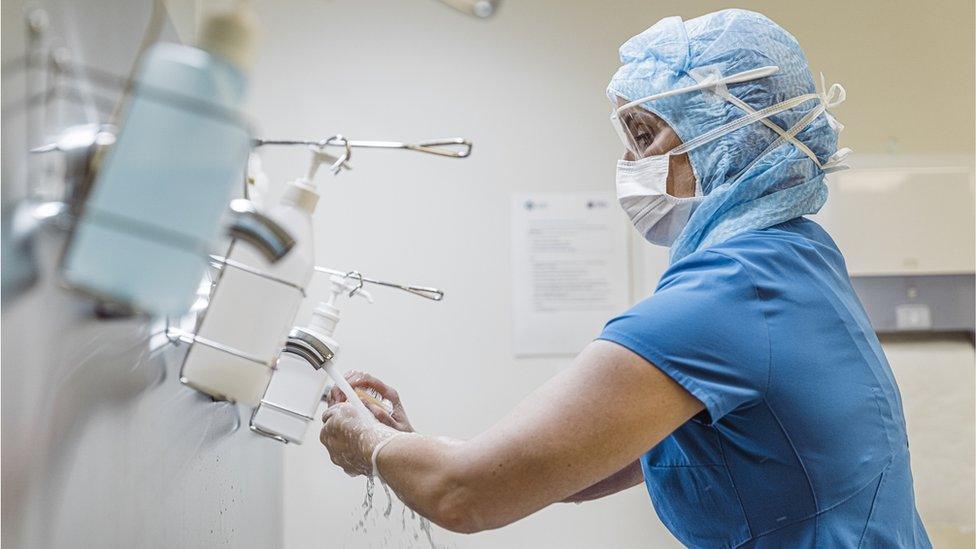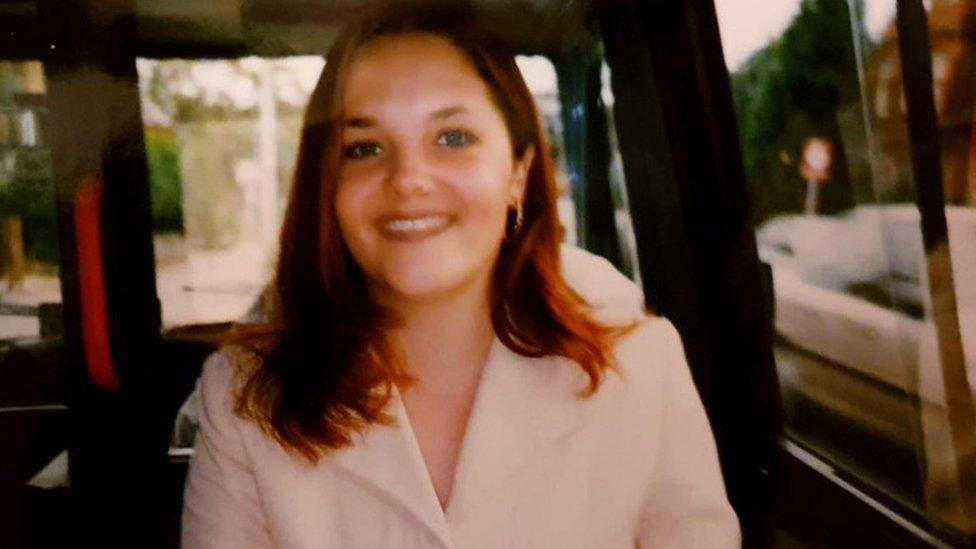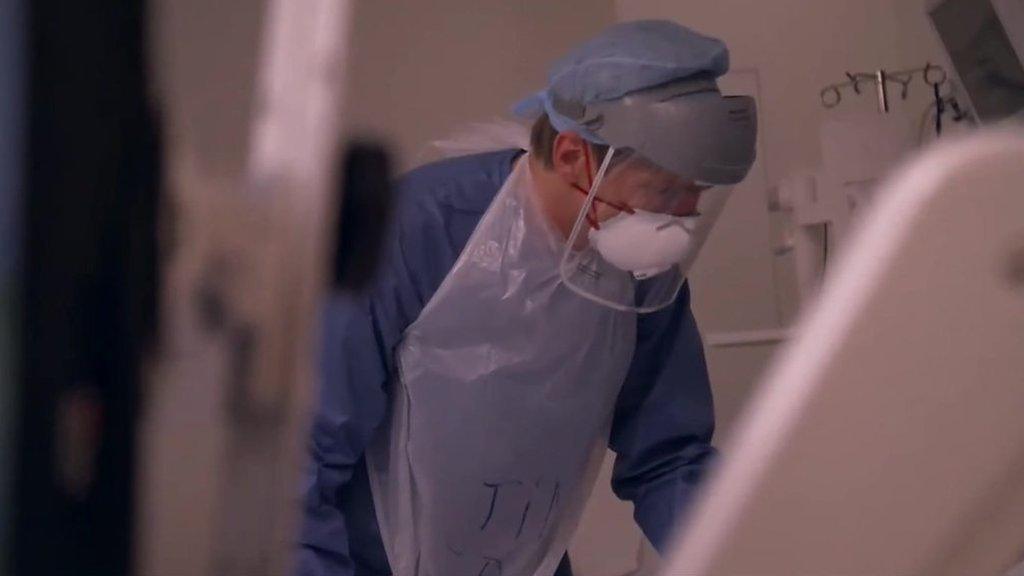Coronavirus: Mental health hotline for NHS staff
- Published

The NHS is launching a hotline to support and advise healthcare staff during the coronavirus pandemic.
Volunteers from charities including Hospice UK, the Samaritans and Shout, will listen to concerns and offer psychological support.
The phone line for England will be open between 07:00 and 23:00 every day, while the text service will be available around the clock.
Staff can find details here, external. Samaritans, external is available to the general public.
It comes as staff face increasing pressure to care for rising numbers of patients who are seriously ill with the virus.
Since the outbreak began, more than 6,000 people have died in the UK after testing positive for coronavirus and among them are front-line medical staff.

Adil El Tayar (left) and Amged El-Hawrani - two British Sudanese doctors - were the first working medics to die of coronavirus in the UK
As well as workload pressures and the emotional toll, some staff say they have had to work in situations where they feel unsafe because of a lack personal protective equipment (PPE).
Prof Tom Dening from the Institute of Mental Health at the University of Nottingham said: "The mental health of NHS staff is going to be absolutely crucial in the nation's response to the coronavirus pandemic.
"Staff are being exposed to high levels of personal risk, long hours in difficult environments clad in PPE, and also the possibility of something known as moral injury, which is the distressing awareness you may feel when you know you can't meet all the needs of the people you are trying to care for.
"This combination of factors would rattle even the most resilient of us."

Aimee O'Rourke died in the hospital in Kent where she worked as a nurse
While staff can still talk to each other and their managers, the NHS hotline will offer support outside the workplace.
There will be 1,500 volunteers to support the 1.4 million nurses, doctors and other healthcare workers in the NHS.
Anyone who requires further help will be signposted to services ranging from practical and financial assistance to specialist bereavement and psychological support, says the service.
Danny Mortimer, from NHS Employers, said: "As the pandemic continues, our people will face new and growing challenges on a daily basis, and it's therefore more important than ever that they are able to access resources to help them manage their wellbeing, in a way that suits their needs."
Prerana Issar, chief people officer for the NHS, said: "We need to do everything we can to support our incredible NHS people as they care for people through this global health emergency."
Meanwhile, a group of mental health experts, led by Dr Michael Bloomfield at University College London, have issued advice and a video, external for front-line healthcare workers on how to cope with stress during the Covid-19 crisis:
Give yourself permission to take regular breaks during your shifts
Eat, drink and sleep as well as you can
Try to use strategies that have helped you cope with stressful situations in the past
Take time out between shifts
Stay in touch with friends and family - video-call and phone them if you can't see them in person
Engage in physical activity
Maintain a routine as much as possible
Plan regular activities that make you feel good, and tasks that take your mind off the crisis
Avoid unhelpful coping strategies such as smoking, alcohol or other drugs
Try to limit the time spent watching, reading or listening to the news
Reach out for help if you need support

Are you a NHS worker? How are you dealing with the additional stresses and challenges during the coronavirus crisis? Share your experiences by emailing haveyoursay@bbc.co.uk, external.
Please include a contact number if you are willing to speak to a BBC journalist. You can also contact us in the following ways:
WhatsApp: +44 7756 165803
Tweet: @BBC_HaveYourSay, external
Send pictures/video to yourpics@bbc.co.uk, external
Please read our terms & conditions and privacy policy
- Published6 April 2020
